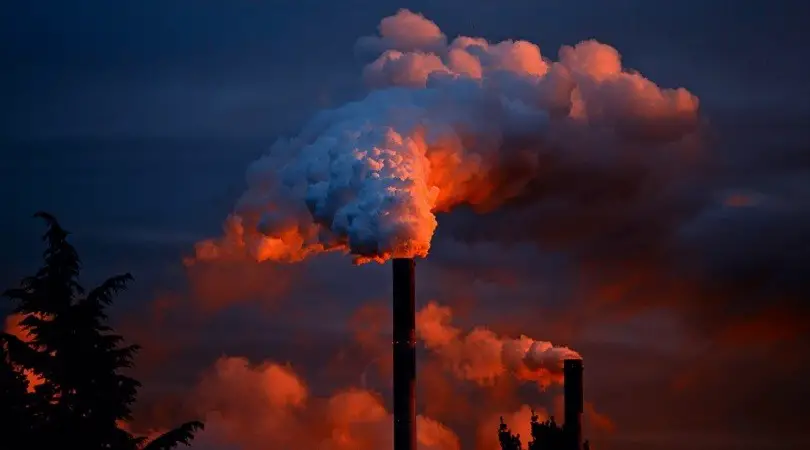Last Updated on January 6, 2025
Environmental toxins are harmful substances that can be found in the air, water, soil, and even in everyday household products. Prolonged exposure to these substances can lead to various health problems, including respiratory issues, neurological disorders, and even cancer.
So how do you safeguard your health and minimize your exposure to these harmful substances? In order to minimize the risk of such health issues, it is essential to adopt a healthy lifestyle that includes protection from toxic substances. Let’s explore some common contaminants:
Be aware of asbestos
Asbestos is a naturally occurring fibrous mineral that was once widely used in building materials and insulation due to its fire-resistant and insulating properties. However, when asbestos fibers are inhaled or ingested, they can become lodged in the lungs or other organs, potentially leading to serious health problems such as asbestosis, lung cancer, and mesothelioma. To protect yourself from asbestos exposure, it is important to know if your home or workplace contains asbestos-containing materials.
If your home was built before the 1980s, it might contain asbestos in areas such as floor tiles, insulation, and roofing materials. If you suspect your home contains asbestos, it is crucial to avoid disturbing these materials, as they can release asbestos fibers into the air. Instead, consult a professional asbestos abatement company to assess the situation and safely remove or contain the asbestos materials if necessary. In cases where individuals have been exposed to asbestos and developed mesothelioma as a result, legal recourse may be available through a mesothelioma settlement.
Test for radon
Radon is an odorless, colorless radioactive gas that occurs naturally in the soil and can seep into buildings through cracks and gaps in the foundation. Long-term exposure to high levels of radon can increase the risk of lung cancer, making it the second leading cause of lung cancer in the United States after cigarette smoking. Make sure your home is radon-free to protect yourself and your family.
Radon testing kits can be purchased at home improvement stores or online and are relatively easy to use. If your test results show elevated radon levels, it is important to take action to mitigate the issue. This may involve hiring a professional radon mitigation contractor to seal cracks and gaps in your home’s foundation, install a radon mitigation system, or make other necessary adjustments to reduce radon levels.
Choose non-toxic household products
Many conventional household cleaning and personal care products contain harsh chemicals that can be harmful to your health and the environment. These chemicals can irritate the skin, eyes, and respiratory system; some have even been linked to cancer, hormone disruption, and reproductive issues. Consider eco-friendly, non-toxic alternatives to minimize your exposure to these toxins.
When shopping for household products, look for labels that indicate the product is free from harmful chemicals, such as “phthalate-free,” “paraben-free,” or “fragrance-free.” You can also make your own non-toxic cleaning solutions using simple ingredients like vinegar, baking soda, and lemon juice. By opting for safer, non-toxic products, you can protect your health and the environment from the harmful effects of toxic chemicals.
Use proper ventilation
Proper ventilation is crucial for maintaining good indoor air quality and reducing the concentration of pollutants in your living and working spaces. Indoor air pollution can come from various sources, including cooking fumes, off-gassing from building materials and furniture, and even cleaning products. Poor indoor air quality can lead to respiratory problems, allergies, and other health issues.
To ensure proper ventilation in your home, make sure to open windows and use exhaust fans when cooking, cleaning, or engaging in other activities that generate fumes or airborne particles. Additionally, consider using an air purifier with a HEPA filter to help remove pollutants from the air. Regular maintenance of your HVAC system, including changing air filters, can also improve indoor air quality and reduce the buildup of harmful substances.
Filter your water
Tap water can contain various contaminants, including heavy metals, pesticides, and bacteria. When ingested or absorbed through the skin, these substances can pose risks to your health. To ensure that your drinking and bathing water is free from harmful contaminants, it is important to use a water filtration system.
Various types of water filters are available on the market, including activated carbon filters, reverse osmosis systems, and ultraviolet disinfection systems. Each filter type has its advantages and limitations, so it is crucial to research and choose a system that best meets your needs. Regular maintenance of your water filter (replacing cartridges as needed) will help ensure that it continues to remove contaminants from your water supply effectively.
Be mindful of outdoor air quality
Outdoor air pollution, such as smog, ozone, and particulate matter, can significantly impact your health, especially if you have pre-existing respiratory or cardiovascular conditions. Take appropriate precautions against outdoor air pollution by staying informed about the air quality in your area.
Air quality indices and apps can provide real-time information about pollution levels in your area, helping you make informed decisions about outdoor activities. On days when air quality is poor, consider limiting your time outdoors, especially during peak pollution hours, and engage in indoor activities instead. When you do venture outside, wearing a mask designed to filter out particulate matter can also help protect your lungs from harmful pollutants.
Choose organic products
Organic farming practices aim to reduce the use of synthetic pesticides, herbicides, and fertilizers, which can contaminate the environment and potentially harm human health. By choosing organic products, you can reduce your exposure to these harmful chemicals and support farming practices that are more sustainable and environmentally friendly.
To shop for organic products on a budget, prioritize purchasing organic versions of the “Dirty Dozen” – the fruits and vegetables with the highest levels of pesticide residues. You can also look for sales and discounts on organic items or consider joining a locally Community Supported Agriculture (CSA) program to receive fresh, seasonal produce directly from local farmers.
Be cautious with plastics
Plastics can leach harmful chemicals, such as bisphenol-A (BPA) and phthalates, linked to hormone disruption, cancer, and other health problems. To minimize exposure to these chemicals, be cautious with your use of plastic products, especially regarding food and drink storage.
Avoid heating food or drinks in plastic containers, as this can cause chemicals to leach into the contents. Opt for glass, stainless steel, or other alternatives for food storage and drink containers. Look for products labeled “BPA-free” or “phthalate-free,” and be mindful of recycling codes on plastic products, as certain plastics are more likely to contain harmful chemicals.
Conclusion
Adopting a healthy lifestyle that protects yourself from environmental toxins is essential for maintaining good health and well-being. Following these tips can reduce exposure to harmful substances, safeguard your health, and contribute to a cleaner and more sustainable environment. Remember that continued learning and action are crucial for staying informed and positively impacting the health of both yourself and the planet.








